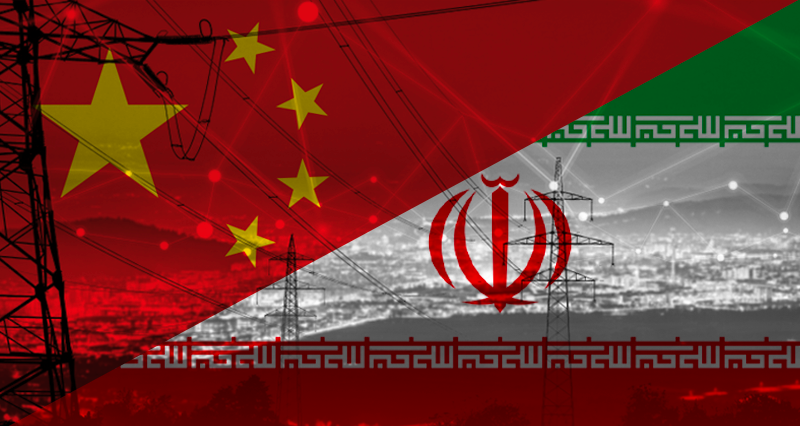The most prominent event that overshadowed the 32nd Arab Summit, hosted by the Saudi city of Jeddah, was the presence of Syrian President Bashar Al-Assad after his country’s membership in the Arab League having been frozen for a period of 12 years.
Syria’s membership in the Arab League was suspended during the Arab Spring, which witnessed the Syrian regime’s suppression of the demonstrations that swept the country in 2011. However, weeks ago, Damascus’ return to the Arab League was approved, despite the objections of some members.
Arabian opportunity
Despite the disagreement among member states on this issue, Saudi Arabia succeeded in creating a conciliatory atmosphere to pass the decision, hoping to dismantle regional crises in light of the extremely turbulent international atmosphere.
According to the Saudi journalist Suleiman al-Aqili, the return of Syria will have security and political repercussions for the Arab system as a whole, and may establish a new Arab order based on regional cooperation on a large scale.
However, Al-Aqili stressed that this would depend on Damascus showing cooperation in implementing Security Council Resolution No. 2254 regarding internal reconciliation, the release of detainees and the return of refugees.
The Saudi journalist pointed out that the Arab role should help Syria to take these steps.
“Now the Arab League has an opportunity to play an active role in the Syrian crisis by adopting a clear and constructive strategy within the Arab framework after Syria’s participation in the Jeddah summit”, Al-Aqili said.
According to an informed Saudi source, Riyadh has been leading the process of restoring the Arab situation since before, with the aim of preparing the region for an active role in a world on the cusp of a new order that sees the Middle East as an important hub in global trade and economy.
The source indicated that Saudi Arabia has crossed its red lines in dealing with Assad, because it found that the old ways were no longer effective in containing Iranian influence, whether in Syria or elsewhere.
Coordination with US
According to the Saudi source, the Saudi move should not be seen as taking place without coordination with the United States.
Despite the statements issued by Washington that did not welcome normalization with Assad, the source said that the White House finds in the Saudi track a form of managing the crisis with Damascus.
“Former US President Barack Obama’s decision not to interfere in Syria gave Russia more room for maneuver in this important Arab country. This decision also gave Tehran ample opportunities to strengthen its influence there”, the source said.
Statements made by US officials, who declined to be identified, to the Washington Post last Friday, reinforce this assessment.
American officials considered that the appearance of Syrian President Bashar al-Assad among Arab leaders during the Arab summit in Jeddah does not represent a turning point in the Middle East.
According to the US newspaper, US officials indicated that they held consultations with leaders in the Middle East about their steps to adopt deeper relations with Syria. The officials made clear that the Biden administration supports the general goals of those countries in Syria, including the hope to reduce Iran’s influence.
Accelerating regional transformations
Therefore, the return of Syria to the Arab League is a necessity for all parties, taking into account the accelerating regional transformations and the growing Russian, Chinese and Iranian influence in the region.
Although there are a number of Arab countries that have reservations about the return of Syria, it is important to adopt serious approaches to address the problems left over from the crisis, including Iranian influence, the fate of the militias and the presence of foreign forces, in addition to refugee problems, demographic change and terrorism issues, while not neglecting the push towards the political process and consensus between the government And the opposition, with the aim of getting Syria out of its ordeal.
The Captagon trade
Although distancing Syria from the Iranian sphere of influence is one of the most important goals pushing Arab countries to normalize their relationship with the Assad regime, a Syrian analyst said that curbing the trade in narcotic Captagon tablets was an important goal for those countries and played a major role in accelerating negotiations with the Assad regime, and even expediting Damascus’ return to the university, especially the Gulf states and neighboring countries.
According to the source, these countries believe that they can persuade the Syrian regime to abandon this trade by using sufficient incentives to stop continuing its production.
After a meeting in Amman that included the foreign ministers of Egypt, Iraq, Saudi Arabia and Jordan, Damascus pledged to take the necessary steps to stop smuggling across the borders with Jordan and Iraq.
A week later, Marai al-Ramthan, dubbed the “Syrian Captagon King,” was killed along with his entire family in southern Syria during an airstrike believed to have been carried out by Jordan.
According to the Syrian analyst, the raid was most likely coordinated by Damascus, which wants to reassure its Arab neighbors.
Necessary concessions
“The Syrian regime has not yet made any concessions. Despite this, its return to the Arab League represents another victory added to its victory in the war. What the regime has not yet succeeded is achieving peace or stability, and its participation in the Arab summit alone will not achieve this goal either. Damascus needs to offer some concessions so that the reconstruction money flows in, so that stability can be achieved”, the analyst said.
So far, the Arabs have provided everything they can to the Assad regime to overcome its isolation. Will it seize the opportunity to engage in a serious process to put his country on the beginning of a sound path that achieves reconciliation and stability, or is this a more difficult task than war?

















Leave a Reply